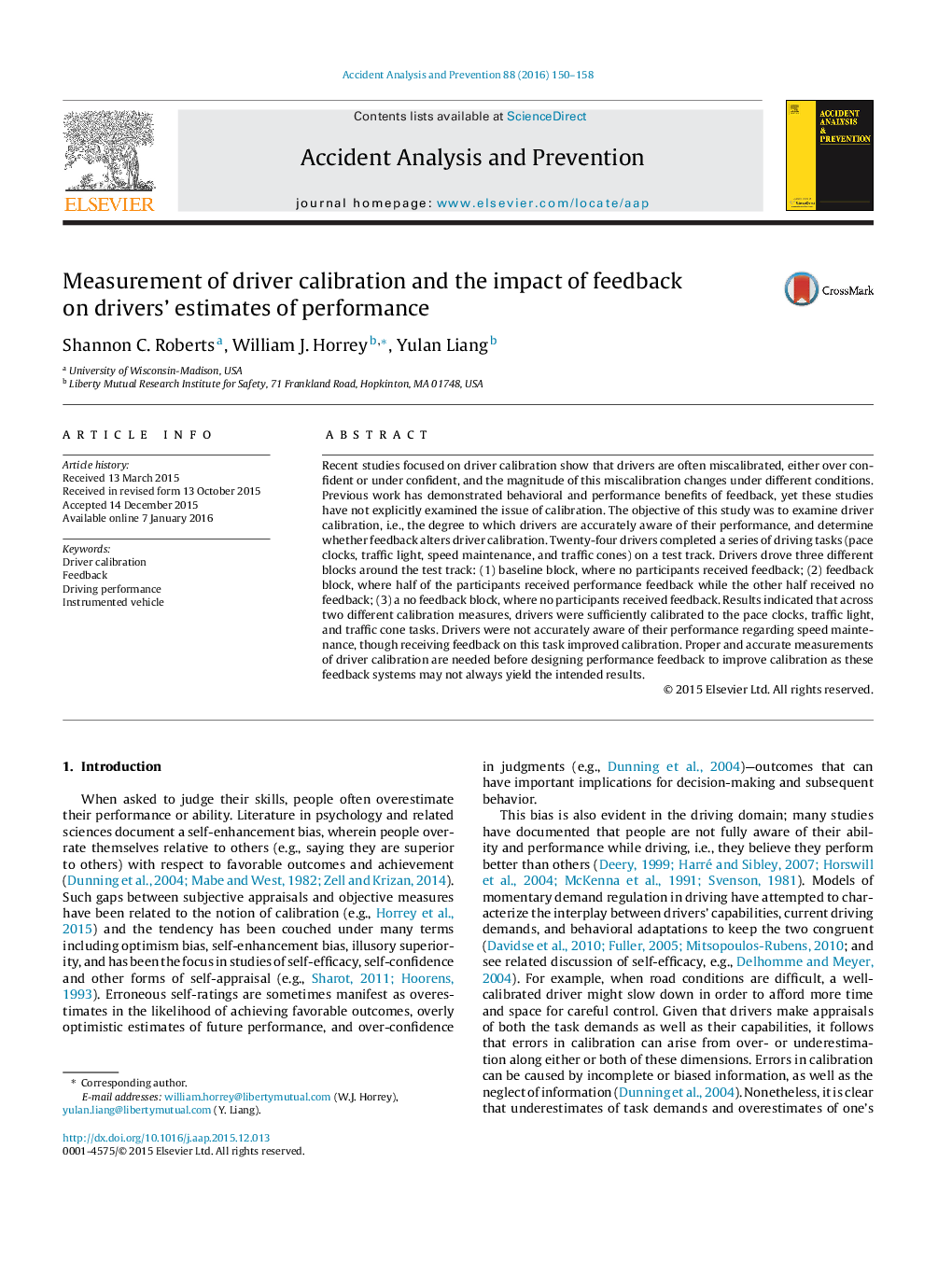| Article ID | Journal | Published Year | Pages | File Type |
|---|---|---|---|---|
| 6965374 | Accident Analysis & Prevention | 2016 | 9 Pages |
Abstract
Recent studies focused on driver calibration show that drivers are often miscalibrated, either over confident or under confident, and the magnitude of this miscalibration changes under different conditions. Previous work has demonstrated behavioral and performance benefits of feedback, yet these studies have not explicitly examined the issue of calibration. The objective of this study was to examine driver calibration, i.e., the degree to which drivers are accurately aware of their performance, and determine whether feedback alters driver calibration. Twenty-four drivers completed a series of driving tasks (pace clocks, traffic light, speed maintenance, and traffic cones) on a test track. Drivers drove three different blocks around the test track: (1) baseline block, where no participants received feedback; (2) feedback block, where half of the participants received performance feedback while the other half received no feedback; (3) a no feedback block, where no participants received feedback. Results indicated that across two different calibration measures, drivers were sufficiently calibrated to the pace clocks, traffic light, and traffic cone tasks. Drivers were not accurately aware of their performance regarding speed maintenance, though receiving feedback on this task improved calibration. Proper and accurate measurements of driver calibration are needed before designing performance feedback to improve calibration as these feedback systems may not always yield the intended results.
Related Topics
Physical Sciences and Engineering
Chemical Engineering
Chemical Health and Safety
Authors
Shannon C. Roberts, William J. Horrey, Yulan Liang,
